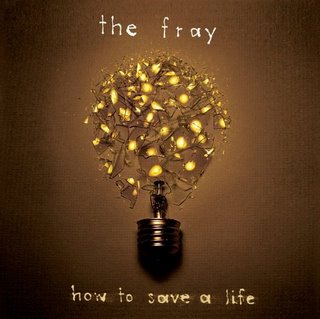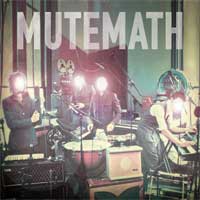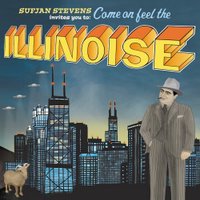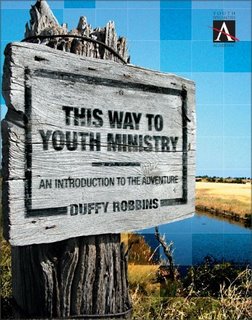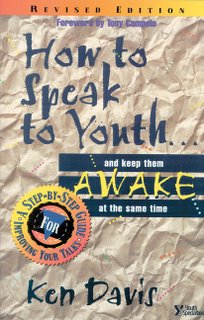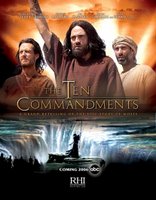
So, did any of you watch the ABC "made-for-TV" movie,
The Ten Commandments? It aired in two parts this past Monday and Tuesday. I TiVoed it. (Oh, I love that verb) I finished watching it last night. You can find the official ABC webpage
here and the filmmaker's official website
here.
What was my impression? I was a bit disappointed. I thought the acting and special effects were subpar. I could have overlooked that, though, if it weren't for the problems I had with the plot itself.
I sat down this morning to read through
Exodus and think through the film. I have been trying to put a finger on why the movie didn't feel right. Please bear with me for the next couple of paragraphs. It might not appear to be that relevant right away...but trust me.
I've heard filmmakers say that character development is extremely important to a good movie (and a good story). Good filmmakers are meticulous about the way they present their characters. They pay attention to every word a character speaks, the clothes they wear, the background music during their screentime and the situations in which they are placed. Their first scene is always crucial, and there are always certain scenes that only appear in a movie in order to transform the way you view a certain character.
When filmmakers tackle the daunting task of transforming well known literature to the silver screen, they have to make changes to the story. Common logic tells us that some things that make sense in written form just don't work when the story is told visually. It seems to me that the filmmakers that have done the best job are those who truly understand their characters and let those characters guide the changes that are made.
A great example is the
Lord of the Rings movies. There are people that have lived and breathed Middle Earth since they were ten years old...and they, by and large, accepted the changes that Peter Jackson made to the stories. Why? I think it is because Peter Jackson's changes were true to the characters.
Perhaps the biggest stroke of genius about Jackson's movies was his decision to treat "the Ring" as a character. Way to think outside of the box, Petey! (Yeah, Peter Jackson and I are close. I call him "Petey." Okay, not really. But I do have a friend who is a pastor in New Zealand. That's close, isn't it? But I digress...) The Ring is an inanimate object, but Peter Jackson treated it just like any living, breathing character in the film. He recognized that this tiny piece of gold represented something extremely important to the human condition...something that you can't see or taste or touch...something that exists on a spiritual level. Peter Jackson
avoided a mistake that is often made by filmmakers...trivializing the unseen...the spiritual.
I think herein lies the major flaw of this version of
The Ten Commandments. The filmmaker,
Robert Halmi Sr., admittedly focused on the character of Moses. He says,
"our version will leave the viewer with a totally new interpretation of who Moses is." As you watch the movie, that agenda is obvious. Almost every change from the Biblical text appears to be an attempt to develop the character of Moses.
Let me give you a couple of examples:
- Example one: in the movie God only appears to and speaks to Moses. Many of the Israelite doubts and complaints come from the fact that they have never seen or heard from God. Instead, they must blindly trust that Moses' conversations with God are real. In the Biblical text, we see something entirely different. During the plagues, God often speaks to both Moses and Aaron together (Ex 9.8). The night of the Passover is one in which the entire nation relates to God through worship and ceremony (Ex 12). When the people of Israel reach Mount Sinai, God reveals Himself to the entire nation and allows them to listen in as He speaks to Moses (Ex 19). These revisions are all done in order to characterize Moses as someone who was put in cirmstances that made him a loner...having to deal with something with which no one else could sympathize or understand.
- A second example is Israel's response to the crossing of the Red Sea and being conclusively saved from the Egyptians. Chapter 15 of Exodus is one of the most worshipful moments of the entire book for both the people and for Moses. In beautiful poetic language, Moses leads the people in song to God. They sing lyrics like, "The Lord is my strength and my defense, he has become my salvation. He is my God and I will praise him, my father's God, and I will exalt him. The Lord is a warrior; the Lord is his name." (Ex 15.2-3). It is a moment of unity and confident praise of God. In the movie, it is changed into a moment of separation between Moses and the people. While the people cheer (like they are at a football game), Moses is hundreds of yards away on the beach by himself, cradling the dead body of his adopted Egyptian brother and crying out at God. Again, this is a change that is made in order to characterize Moses as a recluse, steeped in depression and doubt.
- A third example is the visit from Jethro (Moses' father-in-law) in the desert. The entire visit is summarize in Exodus 18. Over half of the chapter is reserved for a description of Jethro advising Moses to appoint judges so that he does not have to sit as judge over the people. The text causally mentions that Moses' wife and two children arrive with Jethro, but the content focus' on the conversation between Moses and Jethro. One is given the impression by the final verse in the chapter that Jethro leaves alone...meaning that Moses' family is reunited from this point forward. In the movie, the visit focuses on Moses' argument with his wife and his decision to send the family away because he doesn't have time to spend with them. He accuses God of taking his family from him and leaving him alone. Nothing is said of Jethro's advice about appointing judges. In fact, the following scenes portrays Moses as the sole judge over the people. He is overwhelmed. His detractors turn to each other and say, "He is speaks to God for us, He must lead us in battle and he appoints himself as our judge!?" (my paraphrase).
My problem, though, is
not with the decision to portray Moses this way. It might be a bit exaggerated, but I think that, by and large, their characterization of Moses is true to form. He
did feel like an outsider amongst the Israelite people. He had never lived with them. He
did doubt his own leadership skills. He
did feel overwhelmed at times. He
did feel like the entire nation was against him at times.
My problem is with the unintended (or maybe intended) consequence of these changes to the story. In order to portray Moses as a loner...and one who must carry this burden alone...as someone who was constantly doubted by his people...they necessarily had to recharacterize the central character in the story: God. The gap that is built between Moses and the people means that a gap was built between God and the people. So instead of portraying God as a caring, involved God, He is instead portrayed as a cruel dictator who forces his will on people without explanation.
I wish the filmmaker had chosen to go the Peter Jackson route. Treat God as the central character in the film. Think long and hard about the first scene in which He appears (the burning bush). Think about the words you place in His mouth. Think about the colors and images and music that are associated with Him.
I guess I should not be surprised. I don't think the filmmaker shares my view of God. In fact, I get the impression that he intended to portray God as cruel, distant and violent without reason.
Perhaps the success of
The Passion of the Christ and
The Chronicles of Narnia doesn't mean that evangelicals now own Hollywood. Darn it.
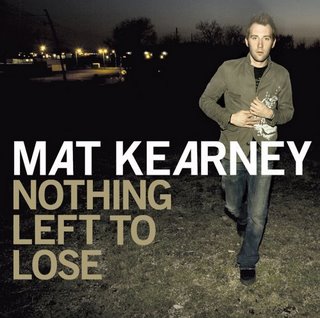 Mat Kearney's new CD, "Nothing Left to Lose" was released on Tuesday. Drop everything and head over to Best Buy and pick up a copy. I think Best Buy is smoking a little something, because they have the CD on sale for only $7.99. In fact, make that two copies so that you can give one away.
Mat Kearney's new CD, "Nothing Left to Lose" was released on Tuesday. Drop everything and head over to Best Buy and pick up a copy. I think Best Buy is smoking a little something, because they have the CD on sale for only $7.99. In fact, make that two copies so that you can give one away.



